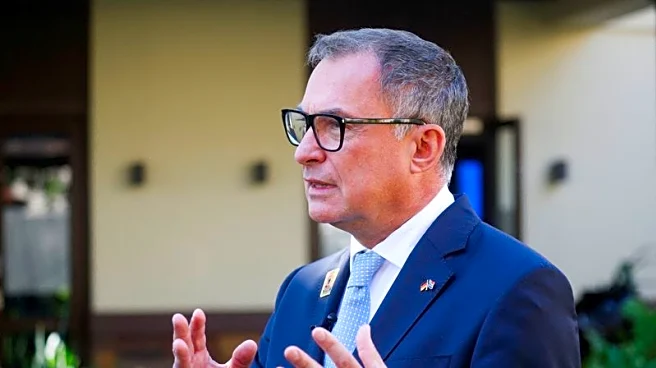What's Happening?
The World of Circular Economy (WOCE) is promoting 'carbon tapping' as a method to reduce the carbon footprint of travel. This initiative aims to measure, track, and manage emissions from tourism, which accounts for 8% to 11% of global greenhouse gas emissions. Pallavee Dhaundiyal Panthry from WOCE emphasizes the importance of behavioral change at the individual level to make mindful travel choices. Carbon tapping involves using tools like carbon calculators and ESG-integrated platforms to provide travelers with a 'carbon score' for their itineraries, encouraging choices that minimize environmental impact.
Why It's Important?
Tourism is a significant contributor to global greenhouse gas emissions, primarily due to transportation. If unchecked, emissions from tourism could increase by 25% by 2030. Carbon tapping offers a way to make travelers aware of their environmental impact, potentially leading to more sustainable travel practices. This approach could shift the industry towards lower-impact options, such as choosing trains over flights and supporting eco-friendly accommodations. By integrating carbon awareness into travel planning, the industry can move towards reducing its environmental footprint.
What's Next?
The future of tourism may see widespread adoption of carbon tapping, with travel apps providing carbon scores alongside traditional booking information. This could lead to industry-wide changes, including government incentives for low-impact travel and public awareness campaigns. The goal is to make carbon-conscious travel a cultural norm, encouraging travelers to consider their environmental impact as part of their trip planning.
Beyond the Headlines
Carbon tapping could transform tourism from a guilt-ridden activity to one of empowered action. By making carbon awareness a core aspect of travel, the industry can foster a culture of sustainability. This shift requires transparency, better tools, and integrating carbon data at every touchpoint, ultimately leading to a more environmentally responsible tourism sector.










